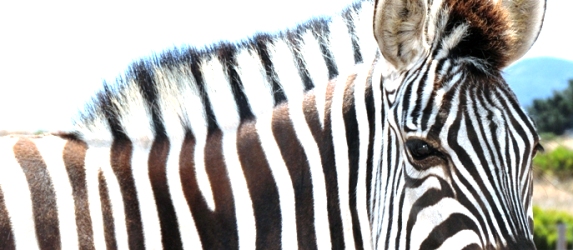
Kenya’s Wildlife Debacle:
The True Cost of Banning Hunting
By Charles E. Kay, Ph.D. in Wildlife Ecology
480 East 125 North, Providence, UT 84332, 435-753-0715 charles.kay@usu.edu

Reprinted with permission from Muley Crazy
Article originally published at Mule Deer Foundation Magazine No.27, pages 22-27 April 2009
As I am sure you know, some segments of the public, both here in the United States and abroad, would like to ban hunting in the belief such a move would benefit wildlife, or at least that is what they claim when soliciting funds. It sounds simple, stop hunting animals and you will have more wildlife. Is this, though, a reasonable supposition? For an answer we need to look at the wildlife situation in Kenya for that African country banned all, and I do mean all, hunting in 1977. There is no sport hunting. There is no meat hunting and landowners, be they white or black, have no right to kill wildlife on their property. The ban is total and absolute there being no legal market in either game meat or wildlife products. Kenya outlawed all consumptive use of wildlife at the urging of animal-rights groups in an attempt to stop poaching, or so they said.
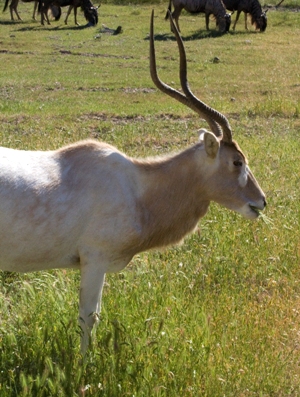
At the same time that Kenya prohibited hunting, the Kenya Rangeland Ecological Monitoring Unit began recording the numbers and distribution of livestock and wildlife, primarily large game species, throughout Kenya. This included national parks and other protected areas, black communal lands, and private property, mostly white-owned ranches. So has banning all consumptive use of wildlife worked? Absolutely not, instead it has been a spectacular failure. Since 1977, Kenya has lost 60% to 70% of all its large wildlife even in national parks. Moreover, it is predicted that most large mammals will be extinct in the next 10 to 20 years. So there you have it, if you want to eliminate wildlife, by all means ban hunting!
The reason this happened, and is still ongoing, is that there is a cost to
having wildlife. If you are a poor, black farmer, as many in Kenya are, and
if your crops are destroyed by wildlife, you face not only economic ruin,
but actual starvation. Similarly, if you raise livestock either on black
communal lands or private ranches, there is a cost to letting wildlife
consume forage that could otherwise have been used to feed livestock. In
addition, there is the cost of being killed or injured by wildlife. You
would be appalled at the number of local people injured or killed each year
by lions, elephants, and other dangerous game. Children walking to school in
rural Africa are all too routinely attacked by wild animals. No American
parent would tolerate what goes on in Africa.
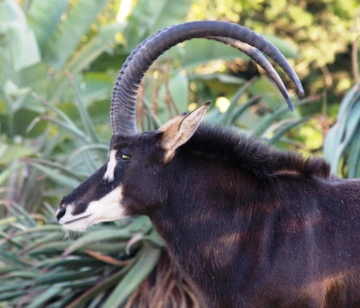
That being the case, it is not surprising then that wildlife has simply disappeared, legal or not. So poaching has actually increased even in national parks. You have to remember that black indigenous landowners were forcefully removed at gunpoint, and without compensation, from every national park and game preserve in East and southern Africa to create “wilderness” pleasuring grounds for white elites. There are few black tourists in any African national park. So the local people “poach” to feed themselves and to earn a few dollars for their families. So would I and so would you, under similar circumstances.
Recently most of the remaining lions in Nairobi National Park, Nairobi being
the capitol of Kenya, were speared to death within sight of the Kenya
Wildlife Service’s national headquarters, while some 500 bureaucrats sat
paralyzed at their desks. “Only a state monopoly could hope to attain such
breathtaking heights of incompetence and ineptitude and hope to get away
with it.” All of which can be traced to the fact that white colonial
governments planted the flag and claimed all land and wildlife for king and
country, thereby depriving local people of their birthright. What is even
more surprising is that black governments have done little to correct this
injustice. Instead, policies like banning all consumptive use of wildlife
have made the situation worse.
| There is more to this than I can relate here and if you would like additional details, Google Mike Norton-Griffiths and you should be able to find the website on which he has posted a number of his research articles. Dr. Norton-Griffiths is an economist who was born in the U.S., educated in Britain, and who has lived in Kenya for many years. In 2007, Dr. Norton-Griffiths published a paper in World Economics [Vol. 8(2): 41-64] titled, “How Many Wildebeest do You Need?” that chronicles this sad story. “All [the animals rights organizations] care about is that hunting and other consumptive utilization of wildlife is not reintroduced to Kenya, and whether this leads to further losses of wildlife and to the perpetuation of rural poverty is completely irrelevant to them, because their underlying purpose is not to help Kenya but [to enrich themselves through fundraising].” |
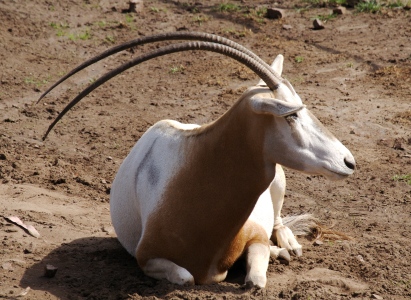
At the same time that wildlife numbers have fallen precipitously in Kenya following the prohibition on hunting, wildlife populations in Namibia have doubled. While in South Africa, wildlife habitat has doubled and then doubled again. Why the difference? Because both Namibia and South Africa passed legislation giving landowners rights to wildlife. That is to say, the landowners own the wildlife, at the least the large game species. In South Africa, with which I am most familiar, the ranchers have to high-fence their properties before the government will relinquish ownership of game species, and there are other regulations, as well. But there are no closed seasons, no state licenses, no bag limits, and no prohibited methods. Shooting under the midnight sun is legal; i.e., spotlighting. There are also sanctioned markets in both game meat and live animals. The end of wildlife you say? Nothing could be further from the truth.

As the post-apartheid government has withdrawn subsidies from white
cattlemen, the landowners have turned to game ranching and both wildlife
populations and sport hunting have experienced phenomenal growth. Now that
the government has changed the incentives from wildlife being a cost, to
wildlife being an asset, a million acres a year are being converted to
wildlife - - unlike here in the States where all you hear about is the loss
of wildlife habitat. Private landowners, not the national government, have
saved the black wildebeest, blesbok, bontebok, and other species including
white and black rhinos, because sport hunting now pays the bills. Aldo
Leopold predicted as much back in the 1930’s when he wrote an essay on “Game
Economics” in which he noted that the surest way to save habitat and enhance
wildlife was to allow landowners to profit from protecting habitat and
enhancing game populations.

At the present time, plains game hunting in Namibia and South Africa is the most cost efficient big game hunting in the world. Moreover, the trophy quality and hunting experience are outstanding. On my second trip to South Africa, I hunted for three weeks and shot 14 animals, six of which made Rowland Ward, the international equivalent of Boone and Crockett. The cost? About the same as one high-end, trophy mule deer or elk hunt on a private ranch or Indian Reservation here in the West.
| Unlike the problems facing Kenya's wildlife, hunters in the US have always been working for a better solution. |
While this has been a blessing for white ranchers, various African
governments have also passed laws giving black communal landowners rights to
wildlife. In Namibia these are called conservancies and it has been shown
that when local people receive a direct financial benefit from wildlife,
illegal activity is reduced or even eliminated. It is really quite simple,
if sport hunting pays the bills, both wildlife, and more importantly
habitat, are not only conserved but enhanced.
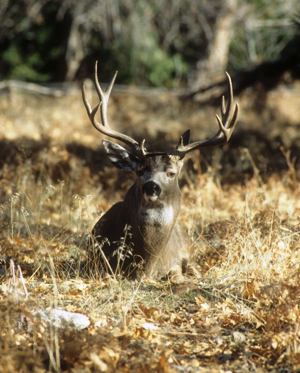
In Kenya, animal rights groups claim that wildlife viewing by foreign
tourists is more beneficial than sport hunting. In that, though, they are
badly mistaken. According to Dr. Norton-Griffiths as “extraordinary as it
may seem, not a single tourist company in Kenya invests in wildlife or
habitat management even though their very economic future depends upon the
resource.” This is because most of the large tourist operations are owned by
multinational companies, whose only concern is short-term profit. In
addition, studies have shown that virtually none of the foreign tourist
dollars make it down to the local people, who actually live with wildlife.
Instead, black elites divert the money to themselves.
It has been estimated that half the gate receipts from national parks “disappear” before reaching the Kenya treasury. Similarly, there is no accountability of the large financial grants that animal-rights groups make to the government each year, rendering them little more than annual bribes. This is why the black elites that run the country have resisted calls to reinstitute hunting. If hunting was again made legal, animal-rights groups would stop giving funds to the central government and thus, there would be less opportunity for rent-seeking behavior by officials; i.e., graft and corruption.
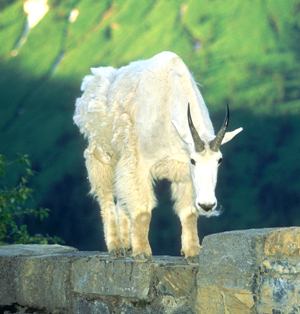
As documented by various scientific studies, wildlife viewing is also more environmentally destructive than sport hunting. This is because the profit margin per person is less, so you have to run a much greater number of tourists through the system to achieve the economic activity generated by a single sport hunter. In addition, tourists expect paved roads and modern five-star accommodations. Water is scarce in arid Africa and tourists require a lot more of it than sport hunters. Furthermore, tourists generate larger quantities of human waste and garbage, both per person and in total, than sport hunters. Sport hunters, on the other hand, are content to stay in tents and drive dirt tracks. No one is arguing that wildlife viewing should not be part of the mix, but to call wildlife viewing “non-consumptive,” is simply false. Tourists also have a much larger carbon footprint than safari hunters.
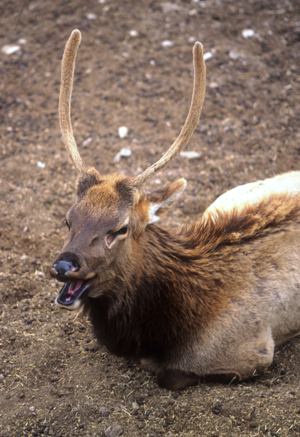
Hopefully you will never have to confront animal-rights activists while you are out hunting, but if you do, or if you favor that sort of thing, now at least you are armed with the truth about the wildlife debacle in Kenya. Banning hunting is a surefire way to eliminate wildlife. Although to non-hunters this may seem counterintuitive, it is nevertheless true. The reality is that outlawing the consumptive use of wildlife in Kenya has been an unmitigated ecological and human disaster. While in other African countries that have modified their game laws to encourage sport hunting, wildlife populations have increased, as have the private and communal lands devoted to wildlife.
As hard as it may be for some people to accept, the free-market system has been more effective at conserving wildlife in Africa than heavy-handed, state-run monopolies.
Author's note: “Since I wrote this article, I have learned that bird hunting
is legal in Kenya-----somehow the articles I was using as my sources missed
that point----but then, I am not a bird hunter”
Photos Copyright © REXANO 2010
www.REXANO.org